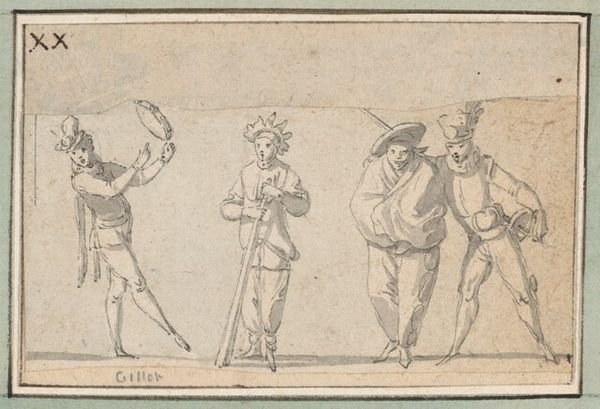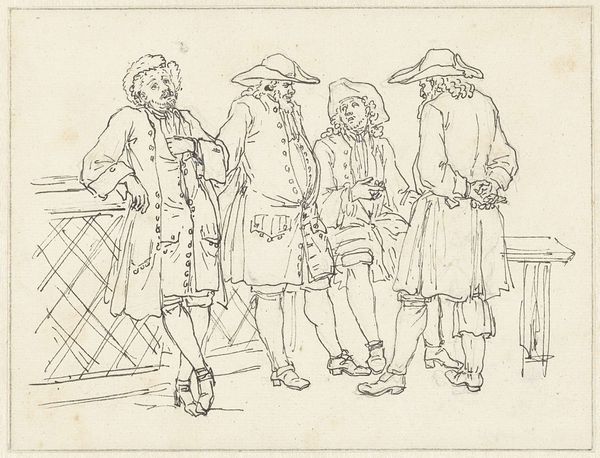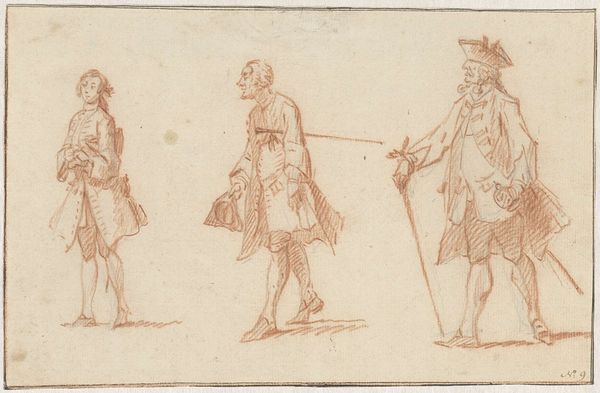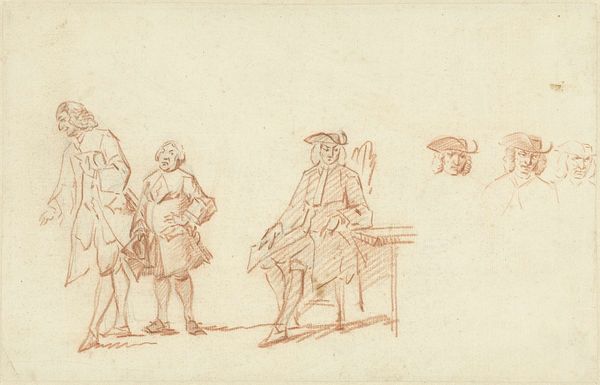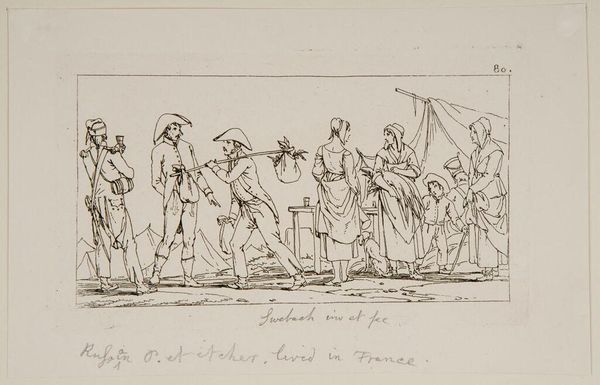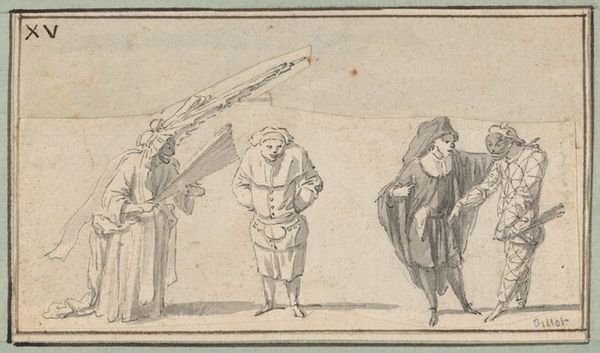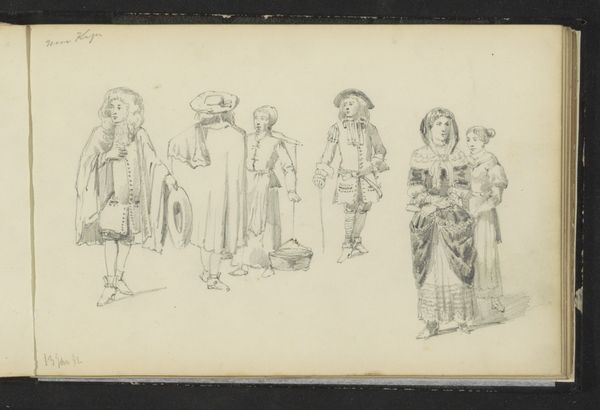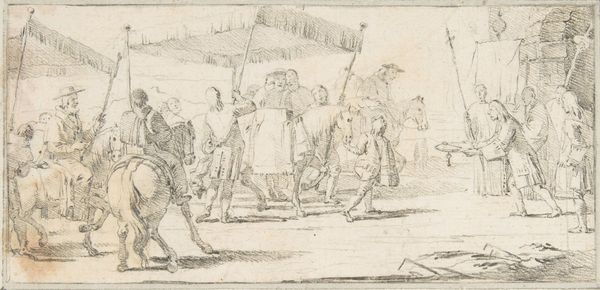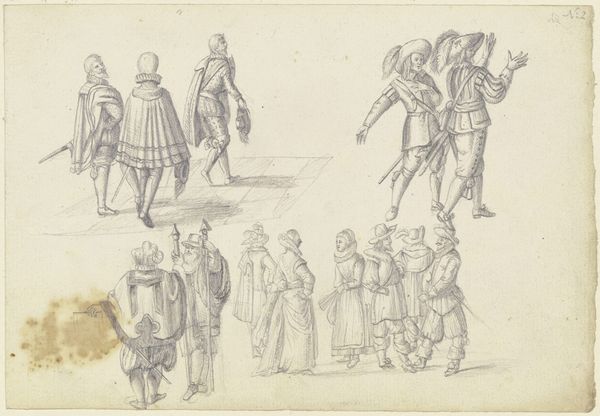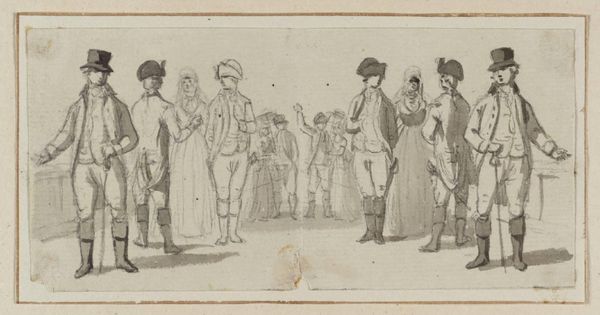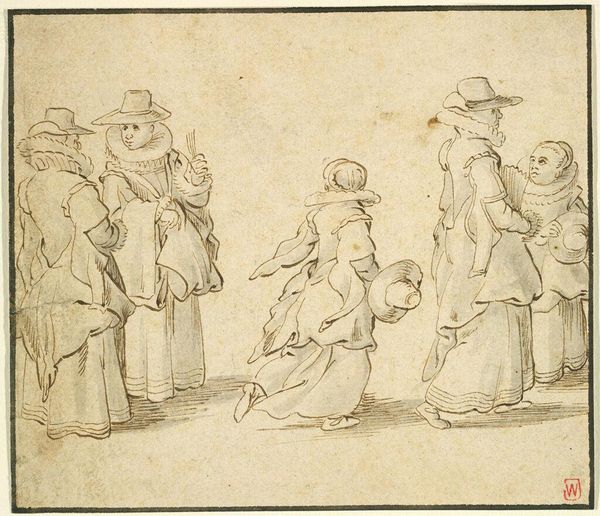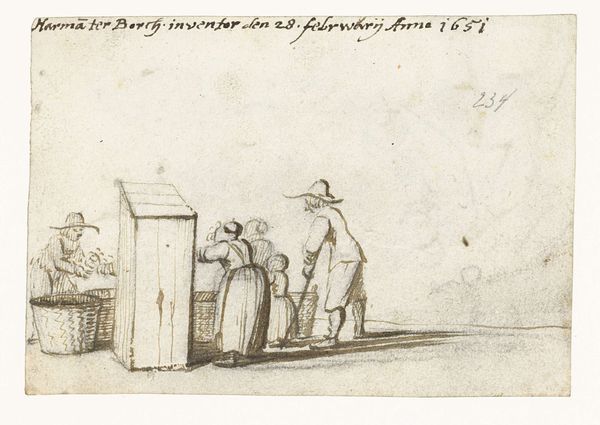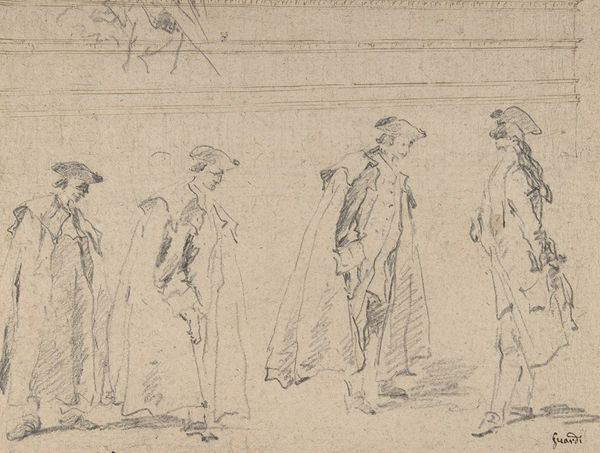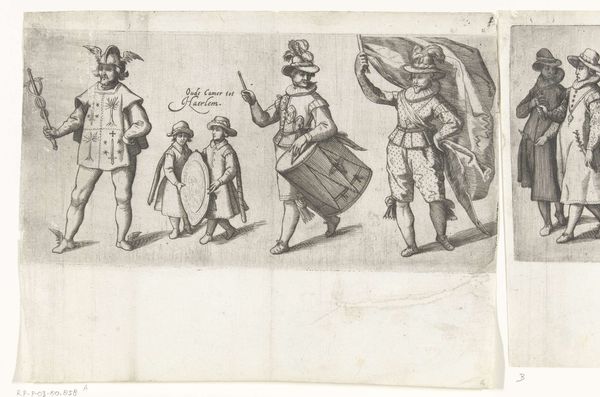
Six Studies of Commedia dell'Arte Actors: Polchinelle, Columbine, Pierrot, a Captain, Harlequin "en femme," and Scaramouche c. early 18th century
0:00
0:00
drawing
#
drawing
#
baroque
#
figuration
#
genre-painting
Dimensions: sheet: 7.7 × 16 cm (3 1/16 × 6 5/16 in.)
Copyright: National Gallery of Art: CC0 1.0
Claude Gillot rendered these studies of Commedia dell'Arte actors in pen and brown ink with gray wash sometime between the late 17th and early 18th century. Gillot situates his characters on a shallow stage, inviting us to consider the performance of identity. The Commedia dell'Arte was popular throughout Europe, though it originated in Italy. It used stock characters, improvisation, and physical comedy. Here we see a range of characters, from the cunning Harlequin—depicted "en femme," or in drag—to the melancholic Pierrot. Gender fluidity and cross-dressing were common in Commedia dell'Arte, providing a space to explore and subvert social norms. Characters challenged and reinforced stereotypes about class, gender, and regional identity. Though these are studies, they reflect the dynamism and transgressive nature of Commedia dell'Arte. Gillot captures the energy of the stage, and reminds us that identities are always, in some sense, a performance.
Comments
No comments
Be the first to comment and join the conversation on the ultimate creative platform.
